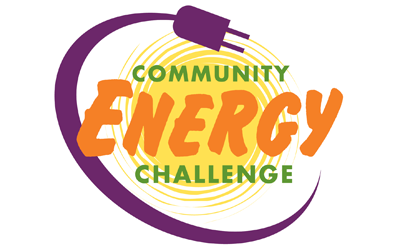Frequently Asked Questions
Scroll down or click on one of these headings for more details.
The Home Energy Audit
What happens in a home energy audit?
What happens after I have had the energy audit?
What are some common recommendations for home energy efficiency?
I already know what energy efficiency work needs to be done on my home. Do I have to get an energy audit?
Getting the Work Done
Once I get my list of recommendations, how do I decide which ones to complete?
Can I take the audit report to my own contractor?
How do I know the work was done right?
Benefits for Participants
Will my energy savings really make a difference?
Does the CEC contribute financial incentives to reduce the final cost of my project?
Is there financing available for my project?
Are there incentives for installing water saving appliances?
Does the CEC provide financial incentives for space heating and water heating upgrades?
Participation Details
Who is eligible to be part of the program?
How much will my energy audit cost?
When is the best time to get an energy audit?
How do I schedule an energy audit?
I own rental property. Can I still get an energy audit?
I am buying a house. Can I get the energy audit before it closes?
What happens in a home energy audit?
An energy audit is a thorough inspection of your home that takes several hours done by one of our Home Energy Advisors (HEA), who are all Building Performance Institute certified Building Analysts. Some common parts of the audit include:
- Examining the exterior of the house.
- Conducting a blower door test to measure the amount of air leakage in the house.
- Identifying areas of heat loss with thermal imaging equipment.
- Examining the furnace, ductwork, and heating system function.
- Evaluating the hot water system.
- Checking insulation levels in the attic, walls, and basement or crawlspace.
- Checking combustion safety for gas and wood burning appliances and identifying any health concerns.
- Assessing moisture and ventilation issues.
- Evaluating the efficiency of doors and windows.
What happens after I have had the energy audit?
You will receive
- A comprehensive report and consultation with your Home Energy Advisor (HEA) detailing how efficient your home currently is and where there is room for improvement.
- Ongoing support from your HEA, and start-to-finish consultation if you choose to move forward through the program with a CEC project.
- Access to exclusive incentives for CEC projects.
- Quality assurance inspection to verify energy savings on all CEC projects you undertake.
What are some common recommendations for home energy efficiency?
The HEA will make a wide range of recommendations, from simple do-it-yourself upgrades, to full contractor projects. The following recommendations qualify for CEC incentives:
- Air Sealing and Duct Sealing: Air leakage allows conditioned air to escape, forcing your heating and cooling equipment to work overtime. Sealing up these hidden holes in your home is the first step to dramatically improving energy efficiency.
- Insulation: Insufficient, damaged, or poorly installed insulation can reduce the effectiveness of heating and cooling equipment. Adding attic, wall, or floor insulation where necessary can be a great way to improve a home’s energy performance.
- Heating upgrade: Old, inefficient furnaces use a lot more fuel than they need to. Upgrading to an efficient ductless heat pump can be a very effective way to reduce your energy bills.
I already know what energy efficiency work needs to be done on my home. Do I have to get an energy audit?
Yes. The energy audit is necessary to measure and quantify exactly where and how much work needs to be done in your home. It allows us to calculate the energy savings, payback period, and run through a variety of scenarios to see what measures are most appropriate for the house. For example, you may know that your house is drafty and needs air sealing, but the blower door test can help identify exactly how much sealing is necessary to achieve maximum comfort while maintaining good air quality. Or, you may be wondering if new windows are a good choice for your home, when an energy audit could reveal that new insulation would give you an even greater increase in comfort at much less cost. The energy audit also allows you to receive program benefits, including ongoing consultation, incentive rebates, and third-party quality assurance.
Once I get my list of recommendations, how do I decide which ones to complete?
The Home Energy Advisor will go over the recommendations with you and help you make an informed decision on which measures make the most sense for your home. You do not have to do every measure recommended, but if you decide to move forward, you will start with the project that gives you the greatest energy efficiency while being the most cost effective. All CEC advice is impartial; as a non-profit program, we have no financial interest in any projects. Our goal is to give you the most accurate information so you can decide what makes the most sense for you.
Can I take the audit report to my own contractor?
Yes. You may choose any contractor who is qualified to do the work as outlined in your report. Qualifying projects must be pre-approved by the HEA, who will guide you along the process from start to finish.
How do I know the work was done right?
Projects completed through the CEC receive a quality assurance inspection to verify that the work completed will achieve the energy savings as calculated in the scope of work.
A standalone complimentary water survey is available.Will my energy savings really make a difference?
Yes! By increasing your energy efficiency you:
- Save money. Weatherization can cut energy costs up to 30%!
- Improve the comfort of your home.
- Increase the durability of your home.
- Increase the resale value of your home.
- Reduce our dependence on fossil fuels.
- Create green jobs and boost our local economy.
Does the CEC contribute financial incentives to reduce the final cost of my project?
Incentives are available for qualifying heating and weatherization projects with a focus on envelope measures such as air sealing and insulation. The Community Energy Challenge is grant-funded, and incentives are subject to availability and may change at any time. Contact us to find out about current incentives. You can read more about incentives specifically for low and moderate income households here.
Is there financing available for my project?
The Community Energy Challenge is partnering with Puget Sound Cooperative Credit Union. PSCCU offers Energy Smart loans, which can be used for many household energy efficiency improvements. You can read more about PSCCU’s loan offerings here. Many CEC participants use existing lines of credit, or choose to work with their own financial institutions.
Are there incentives for installing water saving appliances?
The Community Energy Challenge and the City of Bellingham Water Conservation Program have teamed up to offer rebates on low-volume toilets and clothes washers for City of Bellingham water customers participating in the CEC. A standalone complimentary water survey is available. You can learn more about the City of Bellingham’s Water Conservation Program here or call us for more details.
Does the CEC provide financial incentives for space heating and water heating upgrades?
The CEC can provide incentives for participants converting their space and/or water heating system from gas or other fossil fuels to electric heat pump technology. Learn more about heat pump incentives here.
Who is eligible to be part of the program?
This program is designed to serve homeowners throughout Whatcom, Skagit, San Juan, and Island Counties regardless of income level, if their home’s build date is prior to 1990. A reduced audit fee and additional incentives are available for low and moderate income homeowners.
How much will my energy audit cost?
The audit is valued at $800, and is discounted based on the size or age of the house. The base price for homes built prior to 1990 is $495. Homes that are 2,500 square feet or larger or are built on or after 1990 will have an increased cost. Low and moderate income homeowners may be eligible for a reduced audit fee (you can read more about our offerings for low and moderate income households here). A $200 discount is offered to moderate-income homes and a $400 discount to low-income homes.
When is the best time to get an energy audit?
An energy audit can be done year-round; temperature does not affect the accuracy of the audit. Keep in mind that we may be booked out several weeks ahead, so we encourage you to contact us soon.
How do I schedule an energy audit?
- Audits are scheduled Monday through Thursday. They usually start at 9:00 AM and take an average of 4 to 5 hours to complete.
- Online form: You can complete the online form to let us know you are interested in either scheduling an energy audit, or in finding out more information about the program. The form indicates your interest; there is no obligation to schedule when you submit the form.
- Email: You can email us at communityenergychallenge@oppco.org with your name, address and phone number. Use the subject heading “Energy Audit Request” and we’ll get in touch with you.
- Phone: You can call (360) 676-6099 ext 1185.
I own rental property. Can I still get an energy audit?
Yes. We have worked with many rental-property owners. The house does not need to be owner occupied for you to participate in the CEC. Rental property owners may qualify for additional incentives.
I am buying a house. Can I get the energy audit before it closes?
No, the house must be owned by the homeowner before we can do an energy audit. If you have an anticipated closing date, you can call ahead of time and schedule an energy audit for shortly after it closes.
The Community Energy Challenge is a joint project between Sustainable Connections and the Opportunity Council
Copyright © 2002 – 2024 · Community Energy Challenge · All Rights Reserved


